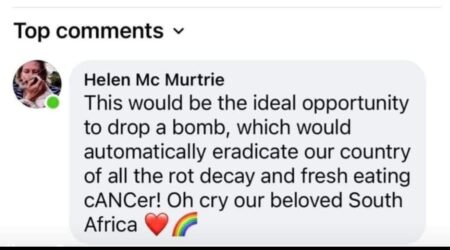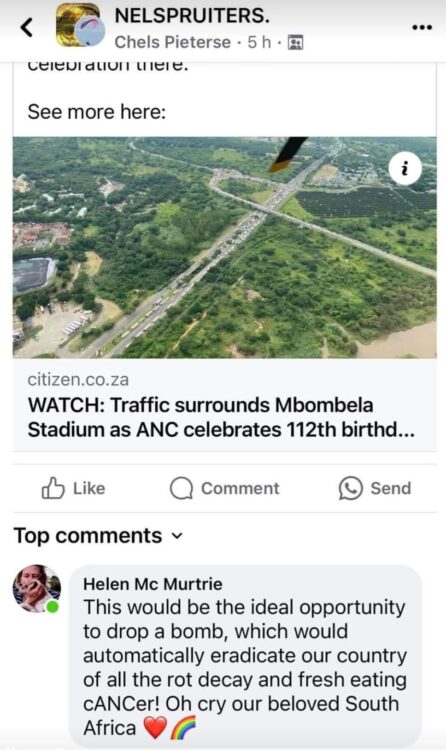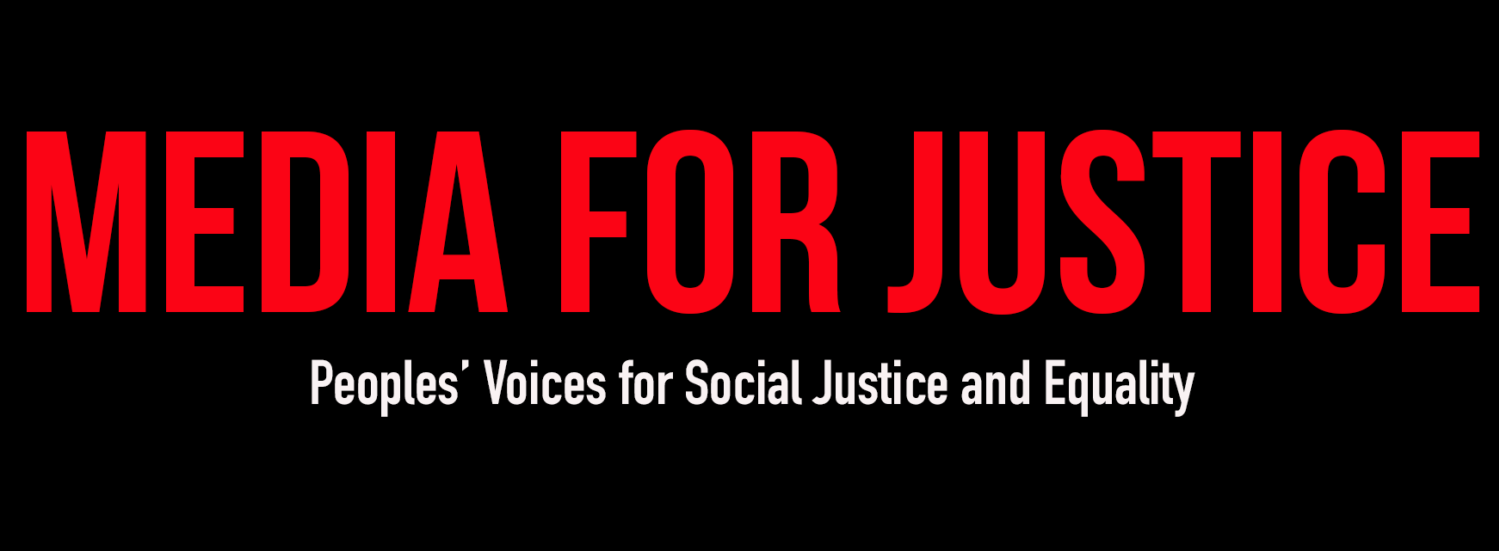By Gillian Schutte.
Persistent racial tensions and instances of race-based violence continue to afflict South Africa, revealing profound challenges in achieving genuine equality. Helen Mc Murtrie’s recent comment on the “NELSPRUITERS” Facebook Page serves as a troubling example of casual genocide promotion, exposing broader racial dynamics within the nation. The incident, occurring on Saturday, January 13th, raises serious concerns about the enduring presence of racism and the potential for genocidal violence.
The term “Casual Genocide Promotion,” coined by activist Bradley Ruiters, sheds light on Mc Murtrie’s alarming comment. His response was to snapshot and disseminate the post which revealed Mc Murtrie’s grave ignorance of the real-world consequences of genocide within her words. Additionally, it highlighted a concerning lack of awareness regarding ongoing genocidal conflicts, such as the tragic events in the Middle Eastern Gaza region.

Mc Murtrie’s comment, expressing a desire to drop a bomb to eliminate what she perceives as societal decay during the ANC’s 112th birthday celebrations, is a disturbing manifestation of casual genocide promotion. Advocating for mass destruction that would indiscriminately affect attendees, she dehumanises Africans and displays a profound lack of empathy. This reckless statement not only reflects a deep-seated racism but also sees an entire group of people as disposable.
Upon witnessing Mc Murtrie’s comment, my immediate reaction was to highlight the ease with which some white settlers’ resort to genocidal language against African people in South Africa. Her desire for extermination could be more severe than the infamous ‘monkey’ remarks made by Penny Sparrow. Sparrow did not express a wish to kill Africans in their thousands, though a similar violence certainly lurked in her subtext.
Mc Murtrie’s hateful utterance exemplifies a disturbing trend where genocidal thoughts are expressed shamelessly by racist white South Africans. She openly wishes for a bomb to be dropped on tens of thousands of indigenous South Africans gathered in and around Mbombela stadium, terming it an ideal opportunity to rid the country of rot.
This attitude is unfortunately not uncommon among racist white South Africans, reflecting not only an individual’s alarming perspective but also the urgent need for broader societal introspection. Advocating for violence on such a scale poses a threat to the targeted group and the entire social fabric of the nation.
In the broader context of racial dynamics, this incident serves as a stark reminder of deep-seated colonial attitudes persisting in South Africa. Urgent state action and stringent legal measures are needed to address and dismantle structural and systemic racism to prevent the escalation of such sentiments into irreversible consequences.
The incident becomes even more alarming considering South Africa’s history of racial tensions. The celebration of the ANC 112th Birthday, predominantly attended by black Africans, signifies a celebration of a political party that played a pivotal role in the fight against apartheid. Mc Murtrie’s comment highlights the persistent racial prejudices despite efforts towards reconciliation.
Additionally, Mc Murtrie’s comment is horrifyingly timed, coinciding with South Africa addressing issues of genocide on the international stage, such as taking Israel to the International Court of Justice for genocide. Simultaneously dealing with external accusations of genocide while witnessing casual calls for genocide internally underscores the complexity of racial dynamics within South Africa.

Casual violence, as demonstrated by Mc Murtrie’s comment, contributes to a toxic environment where discriminatory attitudes are normalized. Such remarks perpetuate harmful stereotypes and hinder efforts towards unity, justice, and equality in a context where historical injustices are still palpable.
Helen Mc Murtrie’s comment is not an isolated incident but a symptom of a broader issue concerning racial tensions in South Africa. The casual promotion of genocide is a stark reminder that racism persists in insidious forms, threatening the majority’s safety and security even in a post-apartheid era. To move towards a more inclusive and just society, individuals must confront their biases, and society must actively work towards eradicating systemic racism and holding to account those advocating for racial terrorism.
This incident prompts a call to action, urging the Human Rights Council of South Africa to take this matter seriously. The term “Casual Genocide Promotion” should not be taken lightly, and the consequences of such rhetoric must be thoroughly examined to ensure the well-being and safety of all citizens. Addressing this incident is crucial not only as an isolated occurrence but as a reflection of broader societal issues that demand urgent attention and resolution. It must be dealt with as the hate speech that it is.
Gillian Schutte is a social justice and race justice activist, filmmaker, writer, scholar and social critic.
Addendum: Helen Mc Murthie blocked me on Facebook when I drew her attention to having seen the post. No doubt she will claim to have been hacked – a standard response from white racist perpetrators of hate speech when their racism is exposed.

